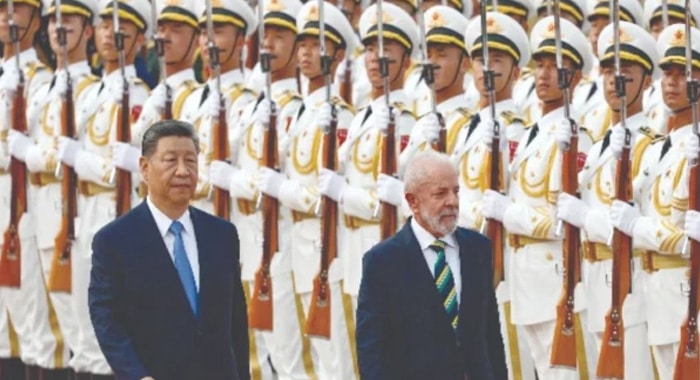In a sweeping challenge to US dominance, Chinese President Xi Jinping has accused Washington of global “bullying and hegemonic behavior,” declaring such tactics are a path to isolation. The sharp remarks, delivered without directly naming the United States, coincided with the announcement of a $9.2 billion Chinese development package for Latin America—signaling Beijing’s deepening strategic foothold in the region.
“Trade wars yield no winners, and power politics breeds only division,” Xi said in a keynote address. “Only solidarity and cooperation can deliver peace and prosperity to the world.”
The funding pledge marks a significant escalation in China’s global outreach, as more than two-thirds of Latin American nations have already joined the Belt and Road Initiative (BRI)—Beijing’s signature infrastructure and investment strategy. With China now the top trading partner for regional heavyweights including Brazil, Chile, and Peru, the balance of economic power in the Western Hemisphere is visibly tilting.
Analysts view the move as a direct counter to Washington’s waning influence in its traditional backyard. By leveraging infrastructure finance, trade, and diplomatic engagement, China is positioning itself not just as an economic partner but as a long-term political alternative.
Even as the US and China agreed to a 90-day pause in their trade war—with Washington trimming tariffs to 30 percent and Beijing reciprocating with a 10 percent reduction—friction remains high. A 20 percent US tariff on chemicals like fentanyl remains in place, underscoring unresolved tensions.
Xi’s remarks, paired with the massive loan package, reflect Beijing’s growing confidence in challenging American leadership on the global stage. As China tightens its grip on key regions through diplomacy and development, its message is unmistakable: the era of Western dominance is over, and a new multipolar order is rising—with China at its center.





